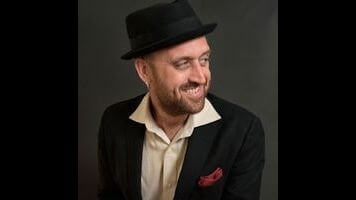
I became a professional traveler. It said “musician” on my tax returns, but if you drew a bar graph illustrating how I spent my years, “music” would be a matchbox, and “travel” and “waiting” twin towers. My old friends still saw one another, met for drinks, fell in and out of love—they just did it without me. And my new friends were either friends of necessity … or of transience, necessarily shallow relationships since I wouldn’t see them until their own orbit blipped through mine again.
With that captivating introduction, Franz Nicolay sets the stage for The Humorless Ladies Of Border Control, a chronicle of tours of the punk underground from Belgrade to Ulaanbaatar. Steeped in the travelogue traditions of predecessors like Paul Theroux, Rebecca West, and the Marquis De Custine, Nicolay grabs readers from the very start with this personal account. But while the book that follows keeps pace in terms of comparing his experiences to those of his literary counterparts, it never feels quite as personal as those opening lines.
Nicolay—who made his name as a musician first with bands like The Hold Steady and The World/Inferno Friendship Society—hit the road for a stretch in 2012, then again in 2013 and 2014, sometimes completely solo, sometimes in the company of his wife, Maria. Along the way, he hit DIY venues, anarcho-leftist squats, and other interesting locales in places like Ukraine, Russia, Poland, Hungary, Croatia, Serbia, and Romania. But the book is less tour diary—Nicolay writes that most concert stories are similar, and he more or less dispenses with that part of it up front—and more travelogue.
Nicolay proves himself well-read in recounting the histories of locales while observing their present days, sharing the hopes and dreams people have for their futures along the way. And he is a worthwhile addition to that travelogue tradition. Unlike West’s British perspective or the French aristocracy of the Marquis, Nicolay’s family has ancestral ties to Eastern Europe—his wife is “from a family of postwar refugees from western Ukraine”—and his documentation of the punk diaspora leads to a unique counterculture viewpoint. His transient-by-nature profession serves as the perfect complement to the coverage of nations in transition, most notably in Humorless Ladies’ bookending of trips to Ukraine—the second coming as the country faced revolution and war.
As one of his new friends notes, “It’s like I’m reading a book of history, and I don’t know how it ends.” Nicolay seems absolutely fascinated with history, so much so that some chapters—like “Tomsk To Baikal”—can feel slightly weighed down by it. Or, as an acquaintance of Nicolay’s puts it, “My friend said he started reading your tour diary … and fell asleep halfway through. It was so long.”
But Nicolay’s passion for the subject matter and ability to pick out good topics also make portions of those same chapters fascinating. A long section on counterculture’s use of the swastika is supplemented by a lesson in how changes in language like the H sound being replaced with a hard G led to a band called Adolf Gitler. He also notes bands like 10cc and KISS were banned in certain areas over their presumed associations with the Nazi SS.
Humorless Ladies, in these moments, helps readers (especially American ones) think about punk and counterculture with more of an international worldview. And thanks to Nicolay’s passionate presentation—and a helpful bibliography at the conclusion—it’s likely to inspire in readers the desire to dig deeper into these histories.
But Nicolay is at his best in scenes like this:
We passed the “island of sport and recreation” and picked up Yegor’s three cheerful, enthusiastic friends, who placed my guitar across their laps as they sat in the backseat.
“He”—Yegor indicated the guy sitting behind him—“loves to change guitars for drugs.”
Sorry?
“He sells guitars and buys drugs.”
The guy with my guitar in his lap?
Nicolay has a way of taking these moments to get at insight about a culture, letting people into his mindset as a touring American musician and much more, all in a humorous and economical way. While the rest of the book and its history lessons remain personal for Nicolay, and somewhat educational for his readers, moments like these do not occur nearly enough. The balance of Humorless Ladies is as promised—two towers versus a matchbox—but the flame is so alluring it’s hard to come to terms with seeing only a few sparks.